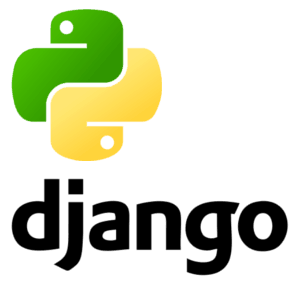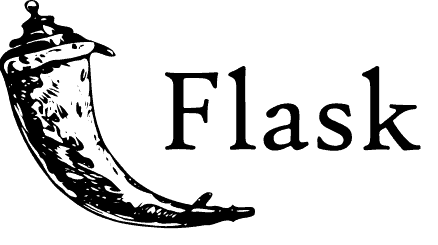Both Django and Flask are equally popular for taking Python projects successfully from idea to reality. But their basic nature is entirely opposite to each other.
On one hand, Django is a full-stack platform where a website application development company can create large web apps. But, Flask on the other hand, is a lightweight and extensible framework focused on minimalism while creating product websites and their backend. If you want to learn Python in detail, then you can join Intellipaat python course and get a python certification.
Are you also one of those who just started with #Python for the web, but is confused between two biggies #Django and #Flask? If yes, then you have come to the right place. Click To Tweet
Here we will evaluate Django vs Flask performance on the basis of multiple factors and try to understand what would be a fitting choice for your next project. Let’s examine these frameworks in detail.
Comparing The Origination: Django vs Flask
Django
It’s a web development platform specifically built to support perfectionists with deadlines. Python Django was first released in 2005 and have an ORM, admin panel, directory structure, and database interfaces for supporting out of the box projects.
This is a free and an open source platform which is created and maintained by the Django Software Foundation (DSF). Also, it has several versions released under its umbrella and is efficiently used for building complex and large web apps rapidly.
Flask
This framework was introduced in 2010 as a free and an open source web development platform. Python Flask is a brainchild of an Austrian programmer Armin Ronacher. It’s flexible in nature as you can determine the way you want to implement things on your own.
Also, it’s quite simple yet extensible to let developers build web apps in a hassle-free manner. After gaining the fundamental understanding of their origination, let’s compare them on the basis of a few other key parameters.
Type Of Web Development Framework
One of the major differentiators for comparing Django vs Flask can be the purpose for which these two frameworks have been built. For example, Django is created on the batteries included approach which let programmers easily complete common web app development tasks like database schema migration, URL routing, user authentication, etc.
Flask, on the contrary, is built on the principles of the minimalistic approach to allow programmers to maintain the core of web apps as uncomplicated yet extensible. However, this framework is devoid of a few built-in Python features, but still, it’s one of the most extensively used ones.
Ease Of Use: The Learning Curve
When compared, Django is found to have a slightly steeper learning curve than Flask as it’s a bit complex in nature and a high-level platform. Python Django is ideal for experienced players as they can understand its terms and architecture efficiently. But for immature Python programmers, Flask is a better alternative. Therefore, if you want to begin with basic projects, it’s wiser to go with Flask.
Recognition Each Of These Frameworks Have Earned On Github
Popularity is another factor to compare Django vs Flask as both of these platforms enjoy a high repute on Github with Django having 29,862 stars, 1,848 watchers, and Flask capturing 31,253 stars and 1,869 watchers.
As we can refer to the stats, both Django and Flask are equally popular where prior is loved by professionals whereas the latter rule the hearts of beginners.
Exploring The Documentation Django & Flask Offers Individually
When comparing Django vs Flask we can see that both of these frameworks has extensive documentation but Django documentation is broader than that of Flask. Where on one hand, the documentation Flask offers cover everything from installation to deployment. Also, it has a detailed tutorial as well as quickstart instructions for the beginners. Python Flask can be easily installed by using Python’s package manager, pip.
While Django on the other has extensive documentation because it’s not focused primarily on minimalism as Flask. It’s easy to install Python Django using pip but it has also a few unique packages for the programmers.
The Level Of Maturity Of These Two Python Platforms
Being older, Django can be considered as a mature framework. It was first released in 2005 and this is why there are multiple plugins, extensions, and third-party apps are available to cater to a wide range of diverse business requirements.
Flask, in comparison, is a much younger addition to the Python family and hence it does not provide the developers with the same variety of alternatives as offered by Django. But still being a younger member Flask has evolved immensely since its inception and managed to win the hearts of beginners.
Evaluating Django vs Flask On The Basis Of Community Support
Django has a plethora of useful content already in the public domain which can be used by programmers in case they stuck at some point. Also, the framework celebrates a large community of developers who are always ready to contribute in order to make the platform even more efficient than before. The community also provide entrepreneurs with reasonable alternatives when they look for scaling their Python web apps.
Flask is a young age tool and that’s why it does not boast a community as large as that of Django. This means that the programmers working with this framework might not get required support in case they encounter difficulty. But nevertheless, the framework still has a lot of experts who are working constantly to expand the community and make the platform much more reliable.
The Extent To Which Each Of These Two Frameworks Support Flexibility In The Development Process
As discussed earlier that Python Django is built on the batteries-included approach which allows programmers to create a wide range of web apps without taking help of any third-party tools and libraries. But the framework isn’t much flexible in its nature and hence developers find it hard to modify the existing modules. They are forced to create web apps by utilizing the built-in features of the framework.
But Flask is a micro yet extensible platform letting a website development company make use of everything for building robust web apps with the help of multiple external libraries, web development tools, and add-ons. Also, Python Flask is blessed with a customizable and smooth architecture.
The Scope For Jobs These Two Frameworks Offer
In the job market, according to Itjobswatch.uk, Django is the 2nd most needed skill for a Python programmer. But Flask is at 20th position. It’s quite clear from the list that developers working with Django have a stronger resume and are most likely to grab good jobs. But it can be an indication of a tough time for Flask professionals.
All you Flask programmers out there don’t need to lose your hope as the platform is continuously evolving and on its way to becoming the most popular Python tool. Therefore, picking Flask can be a bit risky but be sure to reap rich rewards in the future when applying for jobs.


Comments are closed.